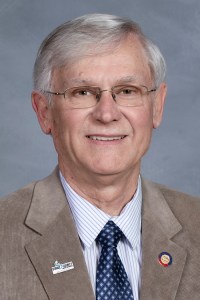State House’s COVID-19 health care group hears needs of medical professionals
Published 12:00 am Friday, March 27, 2020
By Liz Moomey
liz.moomey@salisburypost.com
RALEIGH — N.C. Rep. Wayne Sasser, a Republican from Stanly County, listened in Thursday morning as health care professionals shared needs and concerns of the pandemic with the House Select Committee on COVID-19’s Health Care Working Group.
 Sasser, whose newly redrawn district will extend into Rowan County, is a member of the committee and one of multiple local legislators who’ve been asked to serve on a group of special COVID-19 committees.
Sasser, whose newly redrawn district will extend into Rowan County, is a member of the committee and one of multiple local legislators who’ve been asked to serve on a group of special COVID-19 committees.
Donald Gintzig, CEO of WakeMed and board chair of the North Carolina Healthcare Association, as well as Leah Burns, senior director of government relations with the association, told COVID-19 health care committee members the situation is constantly changing, but they are prepared.
“Hospitals and health systems in communities have been working to respond to disasters in time of need across North Carolina for a very very long time,” Gintzig said. “From hurricanes to snow storms to a flu epidemics to preparing for an Ebola outbreak to severe acute respiratory syndrome, we have a long history of preparing and working together around emergencies and how we respond to disasters.”
Burns spoke about burdens on the health care system. She said child care for health care employees has been a huge issue. That health care facilities have stopped elective surgeries is affecting their bottom line, and Burns said some may struggle to meet payroll. She also asked for relief of regulatory burdens with inspections.
Burns said she also would like to work toward a solution to ensure that future nurses, doctors, techs and other clinicians can actually complete their clinical hour. Burns said the state needs them in the workforce right now.
Gintzig said North Carolina has been “very progressive” in trying to get ahead of the COVID-19 outbreak by calling off school, encouraging social distancing and limiting large groups gatherings. Some counties also have ordered their residents to stay at home.
The goal with the measures is to prevent hospitals from being overwhelmed with patients. Currently the state’s hospitalizations are doubling every 2.5 days and social distancing can increase that to 4.5 days and 6.5 days. Among other things, it lowers the need for personal protective equipment and increases the number of available ventilators for severe cases.
Gintzig said the state will not see the benefits of increased hygiene measures and social distancing for several weeks.
“It’s why the sooner we do it the sooner we’ll see that curve and the demand start to flatten out, which becomes more manageable,” Gintzig said
Gintzig said COVID-19 is different than the common flu. It’s new, does not have a vaccine and spreads fast. He said health care officials are asking: “How do we slow the spread that buys us time?”
“If everyone that got the flu during the six month period got it in two or three weeks and showed up at our hospitals, we would be overwhelmed,” he said. “We take care of thousands of patients. Many end up needing to be hospitalized. Some end up in ICU with the flu. Typically, that is spread out over six months.”
For the North Carolina Medical Society, Chip Baggett, senior vice president and associate general counsel, and Dr. Eileen Raynor, a board member, relayed concerns that included health care workers running out of personal protective equipment that could expose them or furloughing critical staff because of the lack of urgent surgeries.
“Whether it is cash flow, whether it is equipment, wellness care, every bit of that is so we can stay available and well and help people serve patients safer,” Baggett said.
Baggett said the state should incentivize companies to manufacture PPEs, which includes masks, gloves, gowns, eye protective wear and shoe covers.
Rep. Jean Farmer-Butterfield, D-24, inquired about who should be tested. Burns said they are trying to prioritize those who have symptoms.
Burns also said state labs can return results in one to two days and private lab wait times are almost a week.
Sasser, a pharmacist, said he would like the committee to discuss later the availability of medications and their payments.



